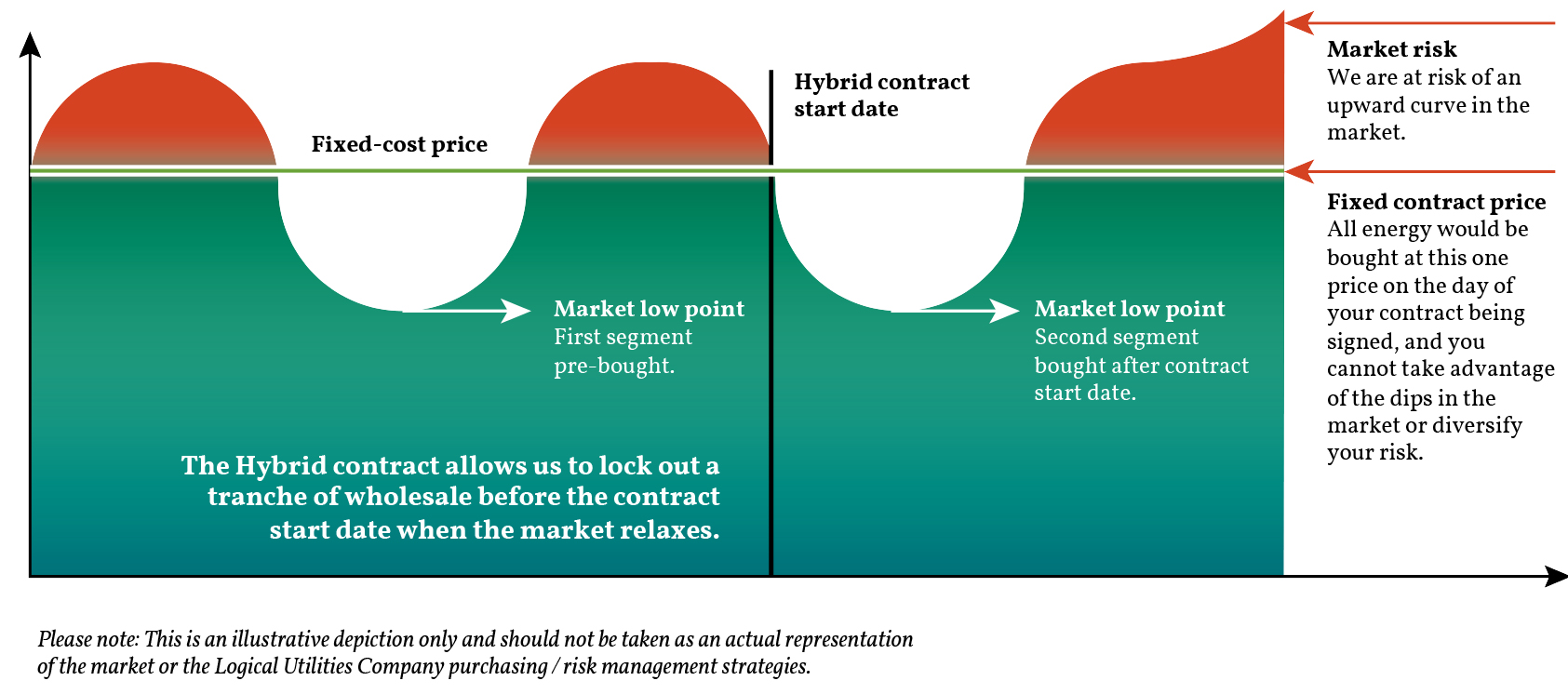News & Blogs from The Logical Utilities Company.




Tom Evans, Business Development Manager
Commercial energy contracts explained: What are the differences between contract types and how choosing the right one for your business can improve your bottom line.
Unfortunately, there isn’t just one universal contract type that fits every single individual business in the UK. Businesses come in all different shapes and sizes, from small retail boutiques to factories mass-producing products on huge assembly lines. As a consequence, there are a vast number of different energy contracts out there to accommodate the differences in consumer demands.
In addition to the vast number of contacts available to your business, it is important to note that each energy supplier has varying terms and conditions and often refer to types of contracts using different terminology.
When the time comes for you to go to the market and start to compare commercial energy contracts for yourself, it’s likely that you will end up trying to compare apples with oranges since contracts and the terminology suppliers use can differ significantly.
With all this in-mind, it’s important to become equipped with the correct knowledge before tackling your business’ energy contracts, leaving you in good stead to ensure you receive the best rates available for your organisation’s requirements, whether you are working with a consultancy or dealing directly with a supplier.
Understanding your energy contract: What is a unit rate?
First of all, to understand your energy contracts, it helps to know what a unit rate is and how this charge is broken down. Your agreed unit rate doesn’t just consist of the actual power you consume; this is only around 50% of the rate. In addition to the energy cost, a unit rate includes everything from transportation costs incurred by the supplier to get power from A to B, to distribution losses and government climate incentive levies. Suppliers also add in an element of risk, usually referred to as a ‘risk premium’. This will vary across different suppliers and depends on your business’ financial circumstances.
What are the different contract types?
There are a vast number of contract types on the market covering the needs of every business out there. To make things easier to digest, we’ve come up with three of the most common groups of contract types and have outlined them here:
Flexible Contract
Flexible contracts provide you with complete freedom and control on purchasing your energy. With a flexible contract you don’t have to purchase all of your energy at once giving your business the freedom to be selective on when energy is purchased.
Due to the instability of a flexible contract we advise speaking with a consultancy who will be able to assist with developing and implementing a suitable risk management strategy to ensure you are buying energy at the right time.
Fixed Contracts
Fixed contracts provide your business with a stable, simplistic approach to buying commercial energy, especially if your business relies on consistent month-on-month budgeting for its success. Your unit rate and terms are agreed at the start of your contract meaning your energy costs will be locked in at the time you agreed your fixed term.
Although you’ll easily be able to set budgets and have the comfort of knowing what you’ll be paying at the end of each month, you may find that overall you could pay more, especially if you’ve fixed at a point when the market is high.
Hybrid Contracts
Hybrid contracts provide you with a combination of both fixed and flexible type contracts, typically a 50:50 split. This means you’ll benefit from the stability of a fixed contract, but with the ability to buy in the remaining 50% when the market shows in your favour. You can buy in advance so you’re able to take advantage of the market decreases.
Hybrid contracts allow you to lock in the non-commodity part of a unit rate, meaning you’ll benefit from any future increases in these costs, while allowing you to take advantage of market lows and purchase your actual energy when the time is right.
How a hybrid contract works compared to a fixed contract:

Due to the nature of hybrid contract types we advise speaking with a consultancy who will be able to assist with developing and implementing a suitable risk management strategy to ensure you are buying energy at the right time.
What are the pros and cons of the three contract types?
To recap, choosing the best contract type to suit your business’ requirements can significantly improve your organisation’s bottom line. However, there are hundreds of different contracts with varying costs, rates and T&C’s it can be difficult to decide which one will benefit your business the most.
Here are some pros and cons of the different contract types we’ve already discussed to get you started off on the right foot!
Fixed contract pros:
- Allows you to lock-in your commodity (the actual energy itself) as well as non-commodity (other charges aside from the energy) giving you the assurance that your monthly unit-rate will remain consistent for the duration of your agreed contract.
- Your bill will be fixed at the day you start your energy contract allowing for consistent budgeting of your energy expenditure.
Fixed contract cons:
- Does not allow you to take advantage of market low points as you’ve fixed in you rates at the start of the contract.
- You could end up paying more than current rates due to fluctuations in the energy market.
Fully flex contract pros:
- You can take advantage of the energy market by purchasing your fuel when the market hits a low point.
- If you are not reliant on a fixed cost for your business accruals, then a flex contract could help you make significant savings on your utility bills.
Fully flex contract cons:
- You could end up paying more for your energy bills if the market hits a high point before you secure your energy.
- Monthly invoices are inconsistent due fluctuations in the market, which would put you at a disadvantage if you rely on a fixed costing strategy for your business’ energy accruals.
- Requires a suitable risk management strategy in order to mitigate risk and achieve the best price otherwise you could end up paying more than a fixed contract
Hybrid contract type pros:
- Allows you to avoid increases in non-commodity costs by fixing this element at the start of the contract.
- You can take advantage of the market lows by purchasing energy in tranches.
- You could make considerable savings compared to a fixed contract type by taking advantage of the market low points.
- Hybrid contracts provides ‘the best of both worlds’ by giving more stability than a fully flexible contract by securing part of your energy bills while still allowing you to purchase energy flexibly.
Hybrid contract type cons:
- You could end up paying more for your commodity due to market highs.
- Monthly invoices are inconsistent due fluctuations in the market, which would put you at a disadvantage if you rely on a fixed costing strategy for your business’ energy accruals.
- Requires a suitable risk management strategy in order to mitigate risk and achieve the best price otherwise you could end up paying more than a fixed contract
How can The Logical Utilities Company help you to secure the right contract for your business and improve your bottom line?
We understand as business owners, you have little time to spare to consider your energy contracts. We have dedicated our business model to removing the pressure of going to market off organisations all over the UK, so let us do the work for you!
Here’s our process to saving you money:
- We go to the market on your behalf and search for the right contract for your business. We’ll take you through each option and discuss which one suits your business’ requirements.
- We are industry renowned energy consultants, with over 10 years of industry experience, so our advice will allow you to make informed decisions on the best energy contracts for your business.
- We will speak with the supplier of your choice directly, so you don’t have to.
- We ensure your contract measures up to your requirements and the transfer process runs smoothly, so you can get on with the day-to-day running of your business without the worry of having to organise your business’ energy contract yourself.
All you need to do is grab one of your utility bills and give us a call on 0845 113 0125* to talk to one of our expert consultants, or you can email us at info@logicalutilities.co.uk
*Calls cost 7p per minute plus your phone company’s access charge
We are Pioneers in Utilities Bureau Support Services. Make your next choice Logical.



